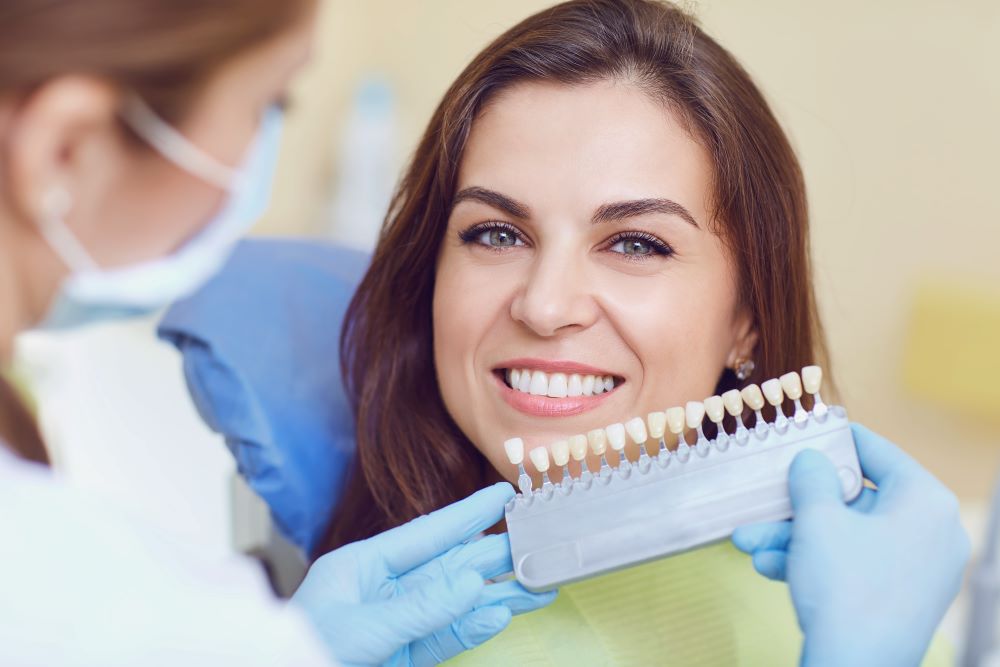Teeth Whitening
- Home
- Teeth Whitening
Teeth Whitening
Everyone wants to have a great-looking smile, but yellowing and stains can make a smile look dull, dingy and, unattractive. And sometimes, no matter how well you brush and floss, those stains just won’t go away. At Alpine Family Dental in Boonton, New Jersey, Dr. Sharmila Chopra offers both in-office teeth whitening treatments as well as take-home, customized whitening kits to help patients get rid of stubborn stains and discoloration so they can enjoy all the benefits of a whiter, brighter smile.

Teeth Whitening Q & A
The most common causes of tooth yellowing and staining are tobacco products and foods and beverages, like coffee, tea, red wine, dark berries, and natural and artificial food colorings. Plus, foods and beverages high in acid content like citrus juices and sodas can temporarily soften the
tooth enamel so stains can penetrate more easily. Stains affect the more superficial layers of the teeth, and they can be successfully treated with professional tooth-whitening treatments, including in-office and professional-strength take-home whitening kits. Stains in the deep portions of the tooth usually occur as a result of decay, infection, or traumatic damage or following long-term use of certain medications. These types of deep stains require veneers or crowns to hide them.
- Alpine Family Dental offers 2 types of whitening treatments: Take-home whitening kits use a special gel and a custom-fit tray to enable the gel to cover the entire tooth surface for more consistent and better-looking results compared to over-the-counter kits available in drugstores. The gel is applied to the tooth surfaces during daily treatments that take about 10-30 minutes each day, with results appearing within about 7-10 days. Take-home kits can also be used to prolong the results of in-office teeth whitening treatments.
- In-office whitening takes just about an hour to perform, and it can provide dramatic results in just one appointment. In-office whitening uses special whitening gels applied to the tooth surfaces. A light is used to activate the gel so it can penetrate more deeply and whiten more quickly. Is teeth whitening safe? Does it make teeth sensitive? Professional teeth whitening is very safe, and Dr. Gyanchand has extensive experience using the most advanced whitening methods for superior results. Some patients may notice temporary sensitivity following teeth whitening, but any sensitivity is temporary and resolves soon after treatment. Dr. Gyanchand evaluates teeth before whitening to look for tiny fissures, cracks, or cavities that can increase the chances of sensitivity so they can be repaired.
Teeth whitening agents are designed to work on porous tooth enamel, and in most cases, they won’t have any effect on restorations. Discolored veneers, crowns, or fillings can be replaced after whitening to ensure they match.